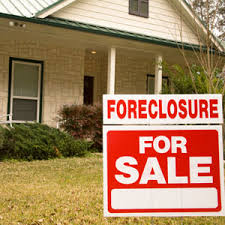Fixing a Foreclosure Problem in Massachusetts

Fixing a foreclosure problem is a matter that may be necessary if a mistake is made in the foreclosure process. If such a mistake occurs, and the foreclosure is void, the buyer does not have full ownership of the property, which will prevent them from evicting any of the occupants or selling the home at a later date.
Fortunately, there are options available for fixing a foreclosure. As someone who has both helped buyers of foreclosed properties with these matters, and homeowners attempting to avoid foreclosure, I know many of the common pitfalls in this area of law.
Overview of Foreclosure In Massachusetts
Massachusetts is a non-judicial foreclosure state. This means that, unlike many other states (such as New York and Vermont), a lender does not need to go to court to foreclose. Rather, a lender can foreclose through a series of legal notices and a public auction sale.
The requirements for a foreclosure in Massachusetts are detailed and must be strictly complied with. Even a minor, innocent mistake can be grounds for arguing that a foreclosure is void.
Common Errors In Massachusetts Foreclosures
Common errors in Massachusetts foreclosures include, but are not limited to, the following:
- Failing to strictly comply with the statutory foreclosure requirements
- Failing to have a proper mortgage assignment at the time of foreclosure
- Failing to hold the promissory note at the time of foreclosure
- Failing to strictly comply with paragraph 22 of the standard mortgage
For a third-party buyer of a foreclosed property, these defects can be problematic. Even though the lender made the error, such defenses can be used against the subsequent buyer of the foreclosed property, to challenge the home’s ownership.
Fixing a Foreclosure: What Can Be Done?
The first step for attempting to resolve a foreclosure problem is to try and negotiate with the former homeowner, if possible. If the former homeowner no longer lives in the home, or has no interest in keeping the property, it may be possible to reach an agreement where ownership of the home can be resolved.
If this is not possible, a court action will likely be necessary. In such a case, a third-party buyer can ask a court to quiet title for the property or allow it to perform a new foreclosure sale.
Final Thoughts
Addressing an issue with a foreclosure should never be done without an experienced attorney’s help. If you need assistance with such a matter, contact me for a consultation.
